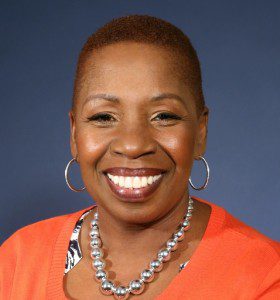I recently have had many conversations with friends of mine about where I am and where I have come theologically over the past few years. Looking back and seeing the journey that I have been on (and still continue on) it has been amazing to see the things that I have delved into, the ideas I have contemplated, and the people that I have interacted with from all across the theological spectrum. In reflecting on how these experiences have impacted me personally, one overwhelming reality dawned on me. If there is anything that I have learned in my theological journey so far it is this: “Fear not.”
These words are among the first that Jesus spoke to his disciples after his resurrection from the dead. He boldly commanded these words throughout his life and ministry. We are even told in the book of 1 John that God is love and that love casts out all fear. This is the among the most important messages and principles to live by as a Christian.
In my early theological formation, I, along with scores of other Christians was taught that, in fact, I should fear theological diversity and difference. I was taught that any theology that differed from my unique brand of Fundamentalist or Reformed theology was actually heresy and was likely damnable. And I am not over-exaggerating this point. Millions of Christians, both lay people and those in ministry, have been taught to fear anyone who comes with a different theological perspective than the one that they were taught. Our Pastors use militant language about “defending” our theological boundaries and “fighting against false doctrine”. All of which cultivates a mindset that causes people to intensely fear anyone who comes along and says something even slightly different than what they “know” to be true. This mindset is what cultivates narrowness in much of Evangelical Christianity that causes us to wholly reject and write off anyone who suggests another way of thinking about any given theological topic. This is also the reason we tend to (falsely) demonize others in our churches, like Catholics, Eastern Orthodox, Anglicans, or the Emergent Church. We see that they look different and perhaps believe differently on certain issues and decide that they are not preaching “truth” and that they are to be avoided at all costs. And for those of us who are aspiring to be Pastors or teachers, the fear language is even worse. I was recently talking to one of my best friends who confessed, “I personally enjoy the exploration, but I am really afraid that if I teach people to explore that I might be responsible for sending them to Hell.” We are told that as teachers, if we say anything that differs from our tribe’s theological position that not only will we be “judged” more harshly but that we also could be sending droves of people to hell because they believe a false theology.
But I am at the point in my journey that I wholly reject those ideas. I find them, frankly, sickening and unbiblical. The idea that God is in heaven with a theological exam waiting to damn anyone who cannot get all twenty questions correct about the God who is infinite and incomprehensible to the human mind. How do we get from Jesus to this image of God? How do we get from the Gospel of Grace through faith, not through works, to this skewed vision of God that if we don’t get everything right theologically that Jesus’ Gospel work doesn’t apply to us? The idea that if we stray beyond the borders of our camps definition of “orthodoxy”- whether that’s TULIP, theology of Charismatic Gifts, or views of Inspiration and Inerrancy of Scripture- that we will surely be condemned. How does this square at all with the message of the Gospel?
I am convinced that it doesn’t. I am convinced that there is almost nothing that I am “required” to believe in order to be “saved”. The only theological statement we see in the Bible that is tied to our salvation is simple and profound- Jesus Christ is Lord. Everything else is mystery to be explored. Everything else is to be thought through. Everything else is a life-long (and eternity long) adventure in to the depths of the eternal God. Now, I understand that numerous times throughout the New Testament that we are told to reject those who teach “false Gospels” and even that teachers will be “judged more harshly”. But I also thing that the context of those statements is abundantly clear- that the false Gospels are not Gospels at all but rather perverted messages of teachers who have hidden agendas and motives. People who preach for financial gain or to get power. These are the types of the false Gospels we see in the New Testament. Not people who have differing views on atonement theory or inspiration of Scripture, but people who know the Gospel and intentionally change it for their own benefit and gain. These people are not followers of Jesus and these people will be “judged more harshly”. But for the rest of us, we are covered by the grace of God, we are free from the fear of judgment and condemnation, and the vast treasure chest of the mysteries of God are open to us to explore- there are no limits or boundaries, nothing is “dangerous”, all of it has benefits for our faith and walk in Christ. So long as we have our hearts and minds fixed on Jesus Christ, our Lord, we can then embark on the theological journey of a lifetime, asking questions, embracing views, thinking through topics, worshipping with others, and practicing our faith differently as we grow and move towards God.
In other words, for the Christian, there is nothing to fear in theological exploration and diversity. That is what I have learned and it is this message that has set me free in a whole new way. I never hesitate to question a long held belief, not for the sake of cynicism but for the sake of understanding and learning. I never fear reading a book from a perspective that I may not currently agree with and even trying to view the world from the mindset of that author, because what is there to fear? I have a Sovereign God who loves me and is infinitely beyond my finite mind- so long as I am delving deep in to him, whether I think, say, or pray something “wrong” is irrelevant, because he is not judging me based on my theological “correctness”, but on my obedience and faith in Jesus Christ. Many will read this and be fearful- thinking I am fast tracking down a slippery slope. But may I suggest to you that even that response if proof that many of us have such a skewed image of who God is? Is that really the God you see in scripture? One who is waiting to damn you if you say something wrong? One who has called you to theological correctness or else hell is for you? Or is the God of the Bible one who gives us grace upon grace, one whom defies human reason and capacity to think, one who calls us to faith and not to theological works? One who continues to love us- even when we’re wrong?
It’s because of this God that I have been released from fear. I enjoy asking questions. I enjoy being skeptical. I enjoy thinking differently. And I enjoy laying my head on my pillow every night and thanking God for another day of discovery and adventure as I have sought to draw nearer to him. I don’t fear being wrong anymore- because more likely than not, I will be wrong. (That’s just the nature of having a finite being describing something infinite.) I don’t fear wrath or condemnation. I don’t fear “going astray” or leading others “astray”. Because as long as I am moving closer to Christ and closer to his command to love God and love others, then I am convinced that I am going in the right direction. Regardless of theological differences. Regardless of social disagreements. If I am moving towards the love of God in Christ Jesus, everything will be okay. If I am in Jesus, whom shall I fear?
Amen.











